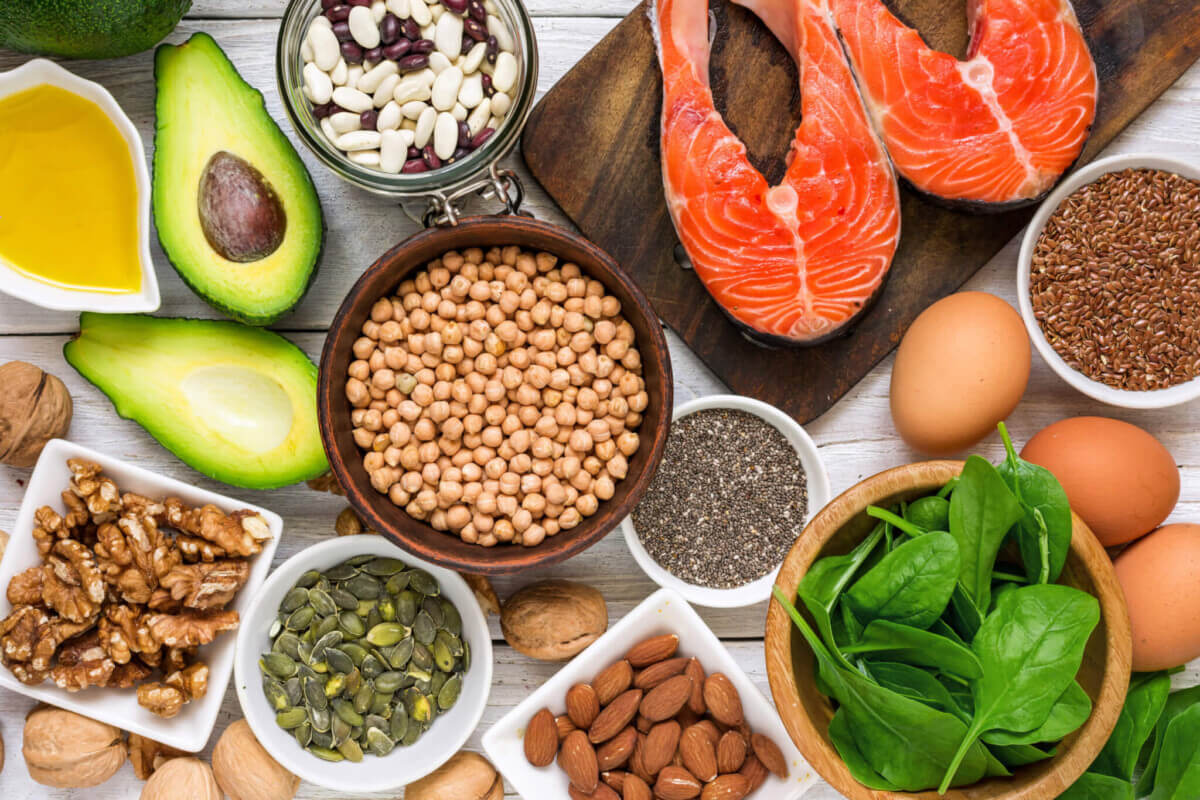
(© Mustafa – stock.adobe.com)
WASHINGTON — The Mediterranean diet has long been touted as the gold standard for healthy eating, but a new contender has emerged from an unexpected corner. Recent research shows that a low-fat vegan diet not only promotes more weight loss but also dramatically reduces harmful substances in our food.
The study, conducted by researchers at the Physicians Committee for Responsible Medicine, an agency that promotes plant-based foods, compared the effects of a Mediterranean diet and a low-fat vegan diet on overweight adults. Participants on the vegan diet lost an average of 6 kilograms (about 13 pounds) more than those on the Mediterranean diet, with no change in their physical activity.
But the benefits, published in the journal Frontiers in Nutrition, didn’t stop at weight loss. The vegan diet also led to a dramatic 73% reduction in dietary advanced glycation end-products (AGEs). These harmful compounds, formed when proteins or fats combine with sugars, have been linked to various health issues, including inflammation, oxidative stress, and an increased risk of chronic diseases like Type 2 diabetes and cardiovascular disease.
 Having a vegan breakfast bowl might be a better option to kickstart your day than eggs with avocado multigrain toast. (© vaaseenaa – stock.adobe.com)
Having a vegan breakfast bowl might be a better option to kickstart your day than eggs with avocado multigrain toast. (© vaaseenaa – stock.adobe.com)
Why you should eliminate AGEs from your diet
To understand AGEs, imagine them as unwanted houseguests that overstay their welcome in your body. They form naturally during normal metabolism, but they also sneak in through our diet, especially in animal-based and highly processed foods. AGEs are particularly abundant in foods cooked at high temperatures, such as grilled meats or fried foods. They can accumulate in our bodies over time, causing damage to tissues and contributing to the aging process – hence their nickname, “glycotoxins.”
The Mediterranean diet, long praised for its health benefits, surprisingly showed no significant change in dietary AGE levels. This finding challenges the perception that the Mediterranean diet is the gold standard for healthy eating. The vegan diet, on the other hand, achieved its AGE-busting effects primarily by eliminating meat consumption (which accounted for 41% of the AGE reduction), minimizing added fats (27% of the reduction), and avoiding dairy products (14% of the reduction).
These results suggest that a low-fat vegan diet could be a powerful tool in the fight against obesity and its related health issues. By reducing both body weight and harmful AGEs, this dietary approach may offer a two-pronged attack on factors that contribute to chronic diseases.
Mediterranean diet not best for weight loss?
The study’s lead author, Dr. Hana Kahleova, says that the vegan diet’s benefits extended beyond just numbers on a scale. The reduction in AGEs could have far-reaching implications for overall health, potentially lowering the risk of various age-related diseases.
“The study helps bust the myth that a Mediterranean diet is best for weight loss,” says Kahleova, the director of clinical research at the Physicians Committee for Responsible Medicine, in a statement. “Choosing a low-fat vegan diet that avoids the dairy and oil so common in the Mediterranean diet helps reduce intake of harmful advanced glycation end-products leading to significant weight loss.”
 Mediterranean diet foods, seen above, have long been viewed as the gold standard diet, with countless pieces of research touting its benefits. (© samael334 – stock.adobe.com)
Mediterranean diet foods, seen above, have long been viewed as the gold standard diet, with countless pieces of research touting its benefits. (© samael334 – stock.adobe.com)
This research adds to a growing body of evidence supporting the benefits of plant-based diets. Previous studies have shown that vegetarian and vegan diets can reduce the risk of developing metabolic syndrome and Type 2 diabetes by about 50%. The dramatic reduction in dietary AGEs observed in this study may help explain some of these protective effects.
For those considering making the switch to a vegan diet, the good news is that you don’t need to change your cooking methods to reap the benefits. Unlike other approaches that focus on modifying cooking techniques to reduce AGEs, the vegan diet achieved its effects through simple food choices – opting for plant-based foods over animal products and minimizing added fats.
Going vegan FTW!
As we continue to search for effective ways to combat the obesity epidemic and its associated health risks, this study offers a compelling argument for considering a low-fat vegan diet. It challenges us to rethink our approach to healthy eating and opens up new possibilities for improving public health through dietary choices.
“Our research shows that you can use the power of your plate to lose weight with a low-fat vegan diet that’s rich in fruits, vegetables, grains, and beans and low in AGEs,” adds Dr. Kahleova. “It’s a simple and delicious way to maintain a healthy weight and fight chronic disease.”
While more research is needed to fully understand the long-term implications of these findings, one thing is clear: when it comes to weight loss and reducing harmful AGEs, plants may just have the power to outshine even the most celebrated of diets.
Paper Summary
Methodology
The study used a randomized crossover design, which means participants were divided into two groups. One group started with the Mediterranean diet for 16 weeks, followed by a 4-week washout period, and then switched to the vegan diet for 16 weeks. The other group did the opposite. This design allows researchers to compare the effects of both diets on the same individuals, controlling for personal differences. Participants attended weekly classes about their assigned diet and were asked to maintain their usual exercise habits. The researchers measured body weight, body composition, and analyzed 3-day diet records to calculate dietary AGE intake.
Results
The vegan diet resulted in an average weight loss of 6.0 kg, while the Mediterranean diet showed no significant weight change. Most of the weight loss on the vegan diet came from fat mass. Dietary AGEs decreased by 73% on the vegan diet, primarily due to eliminating meat, minimizing added fats, and avoiding dairy. The Mediterranean diet showed no significant change in dietary AGEs. Changes in dietary AGEs were strongly correlated with weight changes, even after adjusting for total calorie intake.
Limitations
The study had a few limitations. As with many nutrition studies, it relied partly on self-reported dietary intake, which can be inaccurate. The study also examined many outcomes, which increases the possibility of false positive findings due to multiple comparisons. However, the main findings remained significant even after statistical adjustments. There was also a detected carry-over effect for total dietary AGEs, which required additional statistical analyses.
Discussion and Takeaways
This study suggests that a low-fat vegan diet is more effective than a Mediterranean diet for reducing dietary AGEs and promoting weight loss. The findings challenge the notion that the Mediterranean diet is superior for weight management and metabolic health. The dramatic reduction in dietary AGEs on the vegan diet, achieved without changing cooking methods, offers a simple dietary strategy for potentially reducing the risk of chronic diseases associated with AGE accumulation. The strong correlation between changes in dietary AGEs and weight loss, independent of calorie intake, suggests that AGEs may play a role in weight regulation beyond just calorie content.
Funding and Disclosures
The study was funded by the Physicians Committee for Responsible Medicine. The authors declared that the research was conducted without any commercial or financial relationships that could be construed as a potential conflict of interest. However, it’s worth noting that the Physicians Committee for Responsible Medicine is known for promoting plant-based diets, which could potentially influence the study design or interpretation of results.

